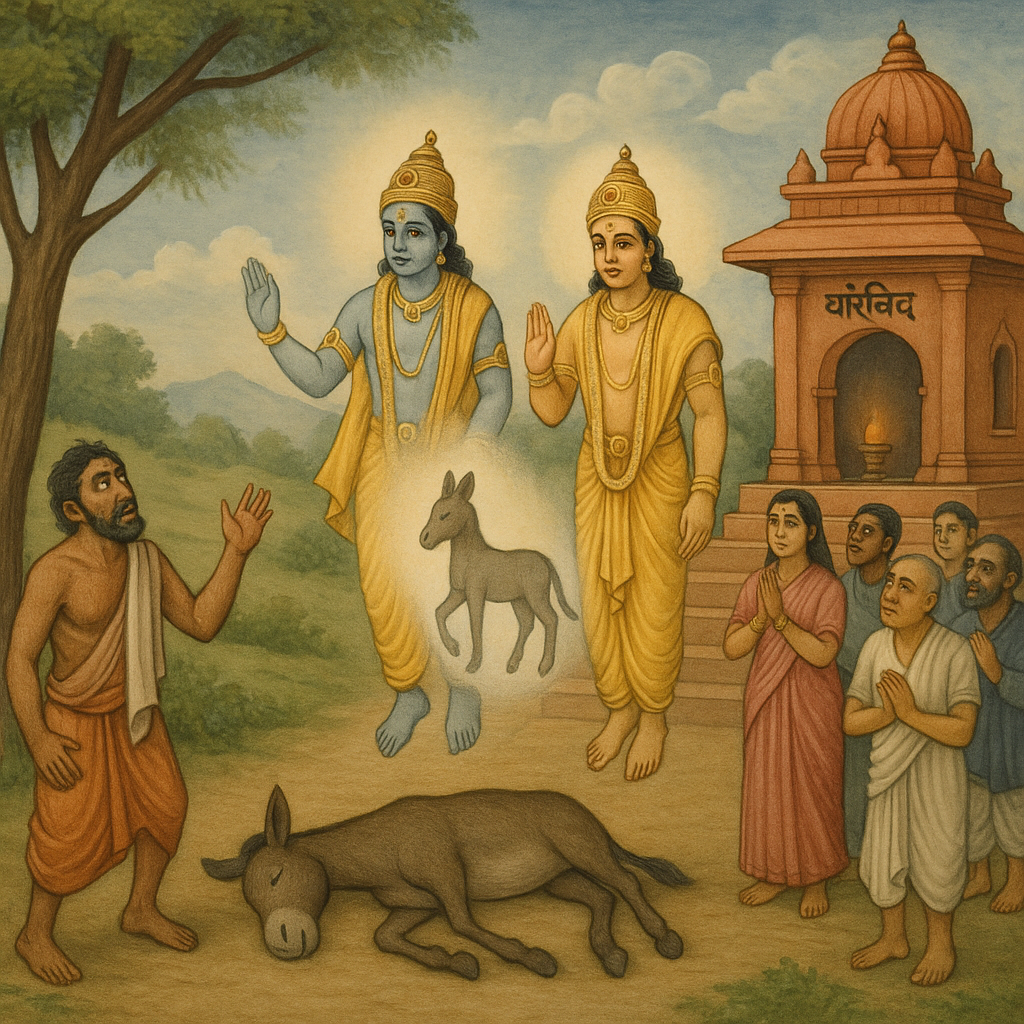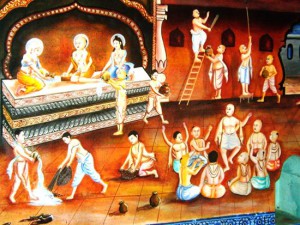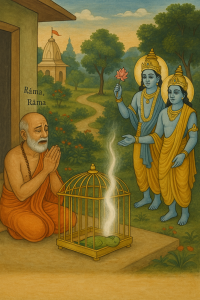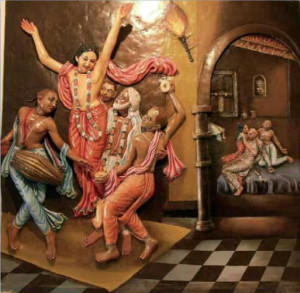A Beast of Burden in a Sacred Land
In a remote village bordering a forest, there lived a poor washerman who made his living by washing clothes for others. He owned a single donkey, thin and overworked, who carried heavy bundles of clothes day after day. The washerman was harsh and unkind, often beating the donkey when it slowed or stumbled.
This donkey led a hard life, filled with pain and exhaustion. It ate dry grass and lived without shelter, yet quietly served its master without complaint.
Passing Through the Temple Grounds
Every morning, the washerman would pass by a small Viṣṇu temple, dragging the donkey along. The donkey never entered the temple, nor was it ever offered anything by the worshippers. Yet, it heard the kīrtana and mantras that echoed from the temple halls as it walked by.
Sometimes, especially on festival days, the sound of “Rāma! Rāma!”, “Govinda!”, or “Nārāyaṇa!” would resound with great joy. The donkey would pause for a moment—ears twitching, head lifted—and then move on.
No one noticed this. Not even the washerman.
Death and a Divine Vision
One day, after years of toil, the donkey collapsed under the weight of a bundle. The washerman, frustrated, left it there to die. As the poor beast lay on the path, its breathing slowed. The last sound it heard was the echo of “Govinda!” from the temple during ārati.
At that moment, something remarkable happened—Viṣṇudūtas descended from the sky, their bodies effulgent like the sun. The villagers watched in awe as they gently lifted the donkey’s soul.
The people were bewildered. “Why would such messengers of the Lord come for a donkey?”
One wise devotee spoke: “This soul, though in the body of an animal, heard the names of the Lord daily. The sound of God’s names is never lost. This is the mercy of nāma-saṅkīrtana.”
Lessons to Be Learned:
- Even hearing the holy name unknowingly bestows spiritual benefit and can liberate the soul.
- The mercy of the Lord is not limited by species or intelligence—His holy name purifies all.
- We should never underestimate the power of kīrtana and divine sound vibration.
- As taught in Padma Purāṇa: “nāma cintāmaṇiḥ kṛṣṇaś caitanya-rasa-vigrahaḥ / pūrṇaḥ śuddho nitya-mukto ’bhinnatvān nāma-nāminoḥ”
“The holy name of Kṛṣṇa is transcendental, full of consciousness and bliss. It is not a material sound, but fully identical with the Lord Himself.”
Origin of the Story: Padma Purāṇa – Stories glorifying the holy name and the unexpected liberation of a soul simply by hearing God’s names.



